Adding to the voices of Wales Arts Review critics and to our music editor Steph Power, we asked some of the most influential voices in Welsh classical music to sing the praises of their personal highlights of 2015.
Scroll down to read directors: Rhian Davies, Michael Garvey, Sophie Lewis, Michael McCarthy, John Metcalf, Rachel Podger, David Pountney and Gwyn L Williams, plus critics Cath Barton, Nigel Jarrett and Peter Reynolds.
Rhian Davies
Artistic Director and Curator, Gregynog Festival
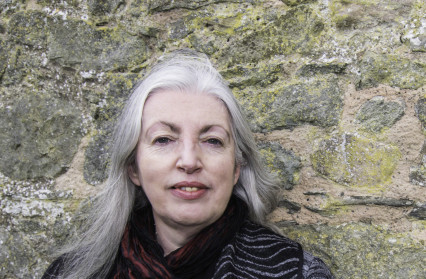
This year’s indelible experiences have been a candlelit concert at the Sam Wanamaker Playhouse in Shakespeare’s Globe by folk fiddler Martin Hayes with New York string quartet Brooklyn Rider, and a retrospective of Alvin Langdon Coburn’s compelling photography at Fundación Mapfre in Madrid. My work often begins from a visual or textual stimulus, so I also loved Queer Tastes, selected by students of Aberystwyth University’s School of Art from the quirky collections of George Powell, Nanteos, and Waterloo at Windsor Castle, featuring the red felt cloak which was seized from Napoleon’s baggage train as he fled the battlefield.
It was great to see Tŷ Gwerin strengthen its presence at the Meifod National Eisteddfod, and the Cofio… strand was another welcome innovation. Cofio Angharad Jones was particularly poignant for me in evoking the brilliant dramatist with whom I scripted my first television documentary about Morfydd Owen. Coincidentally this summer, Morfydd’s remarkable life and death found a fresh medium of expression through Sweetshop Revolution’s I Loved You And I Loved You, a major critical success at the Edinburgh Festival [ed. note – see here for review]. Gwyn Emberton Dance’s My People also made a searing impression at Newport Riverfront, pinning us to our seats in near silence for a full ten minutes afterwards.
Recent months have been dominated by three visits to Ireland: Kilkenny Festival to hear uilleann piper David Power and violinist Aoife Ní Bhríain; Dublin Fringe for Crash Ensemble’s collaboration with the legendary radio producer Nina Perry; and Tradition Now to eavesdrop on improvisation masters Garth Knox, Caoimhín Ó Raghallaigh and Nils Okland. The theme of Gregynog Festival 2016 is Ireland, 17-26 June, when today’s foremost musicians will interpret narratives linking both our cultures, such as the Irish harp pins excavated at Montgomery Castle, and the prison camp at Fron-goch where Michael Collins was detained. An additional weekend, 18-20 November, celebrates the bicentenary of John Roberts, Telynor Cymru, the Romany triple harpist whose music has been handed down through his family to today’s leading virtuoso, Robin Huw Bowen.
Michael Garvey
Director, BBC National Orchestra & Chorus of Wales
It’s been a year full of highlights at the BBC National Orchestra and Chorus of Wales, choosing just one is a challenge: whether it was the wonderful St David’s Day concert that we gave in our national Concert Hall alongside Bryn Terfel or the outstanding performance of Shostakovich’s 10th Symphony in the Brangwyn Hall, Swansea, with our wonderful Principal Conductor, Thomas Søndergård.
Proms concerts at the Royal Albert Hall are highlights of any season, this year two particularly stood out for me. Firstly we concluded our Ten Pieces year with Prom concerts for primary school children. Hearing and seeing the many creative responses that children across the UK had had to our Ten Pieces film was thrilling and it was a powerful reminder for me of the power of classical music. The second Prom I’ll remember because it’s the one at which we found the Orchestra’s new Principal Guest Conductor – Xian Zhang is an incredible musician that I am honoured we can bring to Wales, and who I know will make fantastic music with us, she is such a talent.
BBC NOW’s association with Doctor Who is ten years old this Christmas and, during May half term earlier this summer, we performed a series of amazing shows to thousands and thousands of ‘Whovians’ across the UK. The Doctor Who Symphonic Spectacular tour was conducted by Ben Foster and saw us performing at Wembley Arena, the Hydro in Glasgow and the NEC alongside dozens of Daleks, Cyber Men and even Peter Davidson! It was an amazing week.
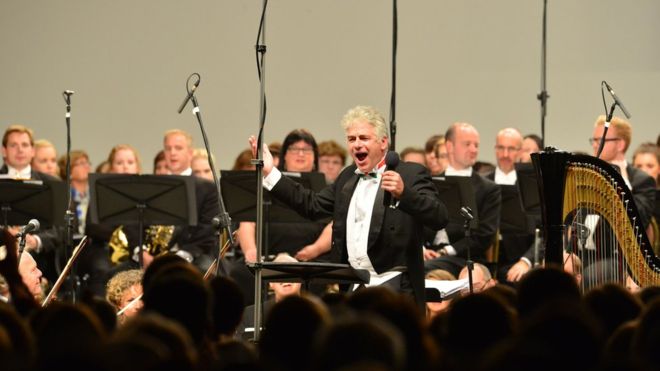
For me, though, the highlight has to be the orchestra’s ground breaking tour of South America this autumn: a ten-day residency in Patagonia working with thousands in the local community, and culminating in gala performances in a former wool warehouse, which was especially converted as a concert hall. Then we toured Argentina, Chile and Uruguay, and received standing ovations everywhere we performed. The highlight of this highlight was the sense of unity that the tour brought out in us all – working and performing so closely together and giving to our audiences, be they top tier subscribers at the Teatro Colon or children in the special school in Trelew, Patagonia, reminds me what the point of this wonderful job is – bringing people outstanding music and allowing that music to help them understand more of who they are and what they want from life.
Nadolig llawen!
Sophie Lewis
Chief Executive, Sinfonia Cymru
Experiencing a group of young musicians pushing themselves to new musical highs is deeply moving. My highlight of 2015 was just that: a musical epiphany, driven by internationally renowned baroque specialist Rachel Podger in a series of concerts with Sinfonia Cymru across Wales during the spring. The all-baroque programme, which included works by Bach, Purcell and Vivaldi, was carefully crafted to give our musicians the chance to both accompany Rachel and perform as soloists. There was a sense of unrelenting energy and purpose throughout that infected everybody both on and off the concert platform.
It was the first time most of the players had used gut strings, made from either sheep or cow gut. These are more temperamental than their usual strings, and almost half of the fifty we bought snapped during the course of rehearsals. Similarly, using baroque bows required an adjustment in the players’ bowing action, but Sinfonia Cymru musicians relish opportunities to do something different. By performing centuries-old music, we all felt like we had learned something new [ed. – see here for review].
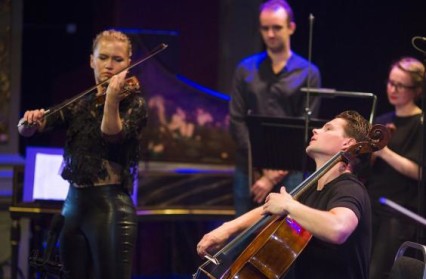
This was not Sinfonia Cymru’s only foray into baroque repertoire this year. At July’s Bristol Proms the orchestra performed with Håkon and Mari Samuelson in a spectacular concert which fused together theatre, visuals and both baroque and minimalist music. It was brilliantly bonkers and the thrill-seeking audience responded with shouts and cheers [ed. see here for Steph Power’s review for The Independent].
Next year, Sinfonia Cymru will be celebrating its 20th birthday. We will announce our plans in the New Year – there may be some baroque, there may even be some baroque n roll!
Michael McCarthy
Joint Artistic Director, Music Theatre Wales
As someone passionately committed to new opera I am very pleased to report I saw two new works this year that demonstrated opera is alive and kicking. I saw both at the London home of Music Theatre Wales – the Royal Opera House: Morgen und Abend by Georg Friedrich Haas with text by the Norwegian playwright Jon Fosse in the main house, and earlier in the year The Cure by Harrison Birtwistle and David Harsent in the Linbury Studio. Both pieces took strikingly original approaches to opera and broke conventions, but neither set out to be radical or revolutionary. They simply had a purity of dramatic and musical intention and were created by artists with a unique and individual voice. I don’t find novelty for its own sake of any interest. I am interested in the expression of ideas, and both these pieces were mature works of art that took the audience to new places.
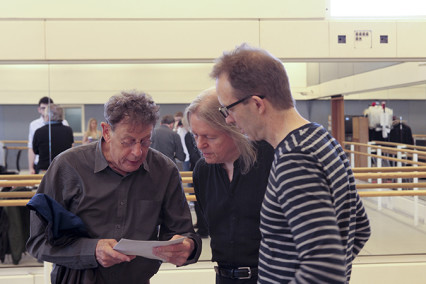
The other highlights for me were opposite extremes – Iphigenia in Splott at Sherman Cymru for solo actress, and Handel’s Saul at Glyndebourne in a life-enhancing and astonishing production by Barrie Kosky. Quite possibly the best show I have ever seen. Brilliantly conceived and performed, musically and dramatically.
Shows like these maintain my belief in performance, and support my work as a director and commissioner. I can’t wait to stage The Golden Dragon for Music Theatre Wales – a thrilling, witty and powerful new opera which explores immigration, with a special ‘Make an Aria’ project alongside it. Before that comes The Devil Inside by Stuart MacRae and Louise Welsh, whose last opera for us won the South Bank Sky Arts Award and was shortlisted for an Olivier! I hope our work will also inspire.
John Metcalf
Artistic Director, Vale of Glamorgan Festival, Chairman ISCM-Wales, Composers of Wales
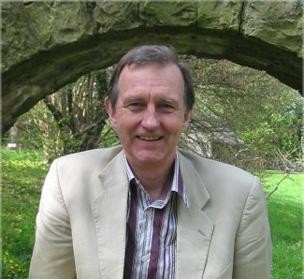
A major highlight of my year in music was a concert in St. Illtyd’s Church, Llantwit Major, on Saturday May 23rd as part of the Vale of Glamorgan Festival. It was given by the pianist Robin Green, one of a growing number of outstanding freelance musicians who have made Cardiff rather than London their home.
The programme of the May 23rd concert was given to a single work – The People United Will Never Be Defeated! by the American composer Frederic Rzweski. It is a set of thirty-six variations on the Chilean song of the same name. The song is perhaps the best known of many that emerged from the popular coalition in Chile prior to the overthrow of the Allende government, and Rzewski composed it in 1975 as a tribute to the struggle of the Chilean people against the newly imposed oppressive regime.
Although conceived by a composer (himself a virtuoso pianist) in the manner of the great classical sets of variations like, for example, the Diabelli Variations by Beethoven, it is not only its subject matter and theme that sets the work apart from earlier masterpieces. In addition to the conventional pianistic demands, the pianist is required to use ‘extended’ techniques such as whistling, slamming the piano lid and catching the after-vibrations of a loud attack as harmonics. The musical style of the variations is eclectic, sometimes romantic, then modernistic.
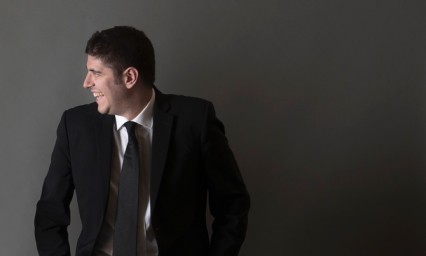
It is clear from this that the work places great demands on the player. This was the first time that Robin Green had played it, and it was an utterly compelling and authoritative performance, a deeply moving tour de force [ed. – see here for review]. The concert formed part of his role as artist-in-residence at the Vale of Glamorgan Festival. In a busy ten days he also gave recitals with the violinist Sara Trickey and as part of the award winning Francoise/Green piano duo.
The recording of the piece by the commissioner and first performer of the work, pianist Ursula Oppens, was named ‘Record of the Year’ in 1979 and received a Grammy nomination. Robin Green has just been invited to record the piece for Toccata Classics. Let’s hope that a similar outcome awaits him.
Rachel Podger
Artistic Director, Brecon Baroque Festival and violinist extraordinaire
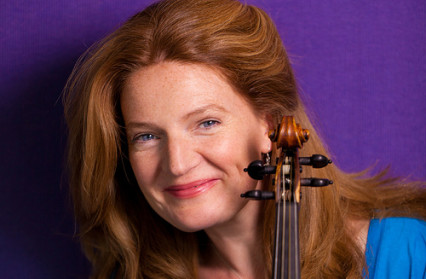
2015 started off with a terrible head cold for me, and it didn’t make the preparation of my Biber Mystery Sonata recording project any easier at first… In the end it accentuated my appreciation of the intense sensations experienced when playing these remarkable pieces. The collection of 16 Sonatas follow the life stories of Christ and Mary, and pain, relief and joy are strongly represented in Biber’s writing as well as in the physical challenges he sets the violinist.
I felt most of those sentiments and more while playing with his subscribed scordatura technique, a deliberate mistuning of the strings in order to maximise the differences in sonorities and resonance on the instrument. The violin experiences a kind of pain as the story of Christ’s passion develops, and as the string tension is heightened with the pitch and wound up higher and higher the more painful it gets. Towards the end of the cycle it winds back down again, and you feel your being relaxing with it. Spending weeks with these pieces, with or without a head cold, felt like a rite of passage and unforgettable in its impact – definitely a highlight for 2015 for me!
Another was ‘my’ Brecon Baroque Festival in October: it was our tenth anniversary and we concentrated on Bach and Leipzig, which of course gave us a rich, wonderful programme including the St John Passion, the Art of Fugue, Preludes and Fugues from the Well-Tempered Clavier, the 6th Suite for Cello (5-string) and a programme of Telemann, Pisendel and Bach concertos to finish with.
Along with our own Cafe Zimmermann I felt four days could not be better spent!! To top it all I was the humble recipient of the Royal Academy Bach Prize 2015 – an amazing honour. Quite a year!
[Ed. note – further information about Rachel’s recording of the Biber here. Review of the St John Passion here.]
David Pountney
Artistic Director, Welsh National Opera
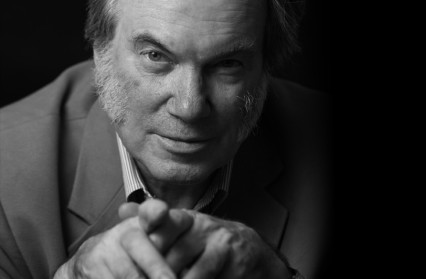
Pelléas was my personal highlight, especially with the wonderful Purves, Adamonytė and Koenigs. Our ‘Madness’ season was the most coherent themed season so far – and Carlo’s conducting of Puritani was sublime.
There is nothing more exciting or more worthwhile or more important than doing new work, and here I go doing three new operas in succession: Figaro gets a Divorce in rehearsal now, opening Feb. 21 in Cardiff, looking to be a very attractive opera with a super cast. A weird excursion into operatic sci-fi in Oslo, entitled Elysium, and a grand climax in Cardiff in May with In Parenthesis.
Opera – dead? You must be joking!
[Ed. note – reviews of Pelléas et Mélisande here, I puritani here and WNO’s ‘madness’ season here. Details of WNO’s forthcoming season here. Elysium is a new opera by Ralf Wallin for Den Norske]
Gwyn L Williams
Director, Tŷ Cerdd, Music Centre Wales
2015 has been particularly exciting internationally for Tŷ Cerdd. In March, New York City saw the launch of Tŷ Cerdd’s new recording of John Metcalf’s Under Milk Wood – an Opera. Members of the original cast performed excerpts for Opera America at the 92nd Street Y in Upper East Side to promote both the recording and the opera in the USA.
Later in the year at the 2015 Slovenia World Music Days, in Ljubljana, Tŷ Cerdd secured full national membership for Wales of the International Society for Contemporary Music (ISCM). From 2017’s Vancouver World Music Days the membership allows Welsh composers to be chosen for performances in this international arena. Tŷ Cerdd worked in partnership with ISCM Britain towards this goal and will continue the collaboration in promoting the benefits of ISCM to Welsh composers. ISCM Wales held its first meeting in early December.
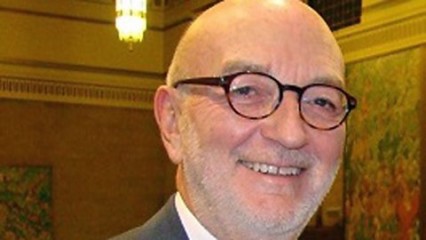
An important facet of Tŷ Cerdd’s work is promoting music-making at a high level within the amateur sector. For example, the organisation has 90 affiliated brass bands and, during the year, Tŷ Cerdd secured the European Brass Band Championships for 2020 for Cardiff and Swansea. This annual event attracts around 50 brass bands from all-over Europe. Partnerships for 2020 are being developed with the Wales Millennium Centre, the Royal Welsh College of Music and Drama, Sinfonia Cymru, Cardiff, Swansea and Caerphilly. An important part of this 2020 festival of brass will be a week-long residency of the European Union Youth Band.
The promotion of the music of Welsh composers is integral to all aspects of Tŷ Cerdd’s work. Hilary Tann (the Rhondda-born composer who has lived and worked in the US for 30 years) became the first ever composer-in-residence for Tŷ Cerdd’s national youth ensembles. She was commissioned to write a new work for the National Youth Brass Band, and the National Youth Choir, on tour to Argentina in celebration of Patagonia 150, performed her a-cappella Paradise to capacity audiences in Buenos Aires, Trelew and Gaiman.
A major milestone for Tŷ Cerdd during 2015 has been the inauguration of its new website, Discover Welsh Music. For the first time it’s now possible to view and to buy Welsh music at a single click. The National Library of Wales is collaborating in the digitisation of Tŷ Cerdd’s archive for this new website and Faber Music is enabling the retail side of the website through its e-partners scheme, which engages with many of the UK’s major publishers.
********
Cath Barton
Critic
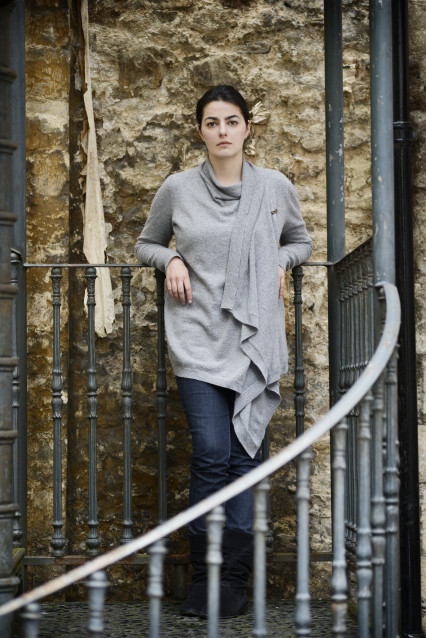
Thanks to the generosity of the composer, I am listening, as I write, to Dobrinka Tabakova’s Centuries of Meditation (YouTube) for choir, harp/piano and strings. She has made freely available the live recording of the premiere of this work given at the Three Choirs Festival in 2012, with a backdrop of pictures of the Thomas Traherne stained glass windows which inspired it. I heard the music reprised this year as part of the Vale of Glamorgan Festival at St David’s Hall in Cardiff, a venue which managed to provide both the space and intimacy which the work seems to me to demand. There were no stained glass windows to hold the eye in St David’s Hall, but the music has such depth of colour and such luminosity that it has imprinted itself in my mind as strongly as the most striking visual image.
The performance which I heard in May was given by the Estonian Philharmonic Chamber Choir, a group of singers steeped in the music of Eastern European composers, in particular that of Arvo Pärt. Listening to the music of these two composers side by side on that occasion I had a strong sense of Pärt handing over a baton to Tabakova. She was born in Bulgaria and her music seems to draws on the same mysterious wellspring as his (notwithstanding his Estonian origins), but she has lived for much of her life in London, and the influence of the English choral tradition is also clearly audible in her work. Above and beyond both she has articulated that elusive thing which all artists seek to express, her own voice.
Thinking back to a performance which – in words from Traherne which Tabakova set in this work – ‘transported and ravished me’, I now have a great urge to go and gaze upon those stained glass windows in the Audley Chapel of Hereford Cathedral, preferably plugged into a recording of the music. In these dark days it will be a nourishment for the soul.
Nigel Jarrett
Critic
Wales’s good fortune in being paid two visits in less than a year by one of the best string quartets in the world – some would say the best – was bound to be worth proclaiming in 2015.
The Emerson Quartet, now including the Welsh cellist Paul Watkins, first turned up to give a concert at the Royal Welsh College of Music and Drama, Cardiff, in January. It was a chance for Watkins, formerly principal cello with the BBC Symphony Orchestra and a member of the Nash Ensemble, to show his face as local boy made exceptionally good: he’s from Argoed, in Gwent’s Western Valley. It also gave him the opportunity to exercise his other role as occupant of the college’s Jane Hodge International Chair in Cello.
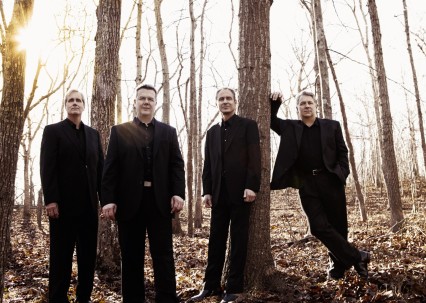
I couldn’t make the first appearance, but no doubt it was as breathtaking as the second, in November. The only negative effect Watkins’s arrival could possibly have had on the Emerson was to lower its ranking, and no-one, least of all the three members left when his predecessor, David Finckel, departed to pursue other interests, believed that was ever going to happen.
Moreover, it was facile to suggest that his status as the quartet’s latest and youngest member had supplied a quality it formerly lacked. As I said at the time, Watkins has simply provided continuity, and the second Cardiff concert of music by Beethoven, Bartók and Schubert proved that beyond doubt. His Emerson colleagues had unhesitatingly chosen him as the replacement, a sure sign that he would at the very least be Finckel’s equal as an ensemble player.
Anywhere in the world they’d be queuing to see the Emerson, and the two Cardiff concerts at the college’s Dora Stoutzker Hall were sold out early. Although there was an additional reason for the appearances at the college and in Cardiff, they did the venue no harm in confirming it as the capital’s leading promoter of world-class chamber music and solo recitals.
Peter Reynolds
Critic and Composer
The Presteigne Festival unfolds over a long Bank Holiday weekend at the end of August. Over the years, this sleepy bordertown festival has evolved into one of Wales’s most important contemporary music dates in the calendar with some 60-70% of its programme given over to new music. That in itself would be interesting, but what gives this festival its own unique flavour is the way in which it doesn’t simply become a series of performances, but a chance to meet and talk to the many composers and performers who make their way there, throughout the day and late into the night. The festival itself is a non-stop series of talks, discussions and events running from mid-morning through to late at night.
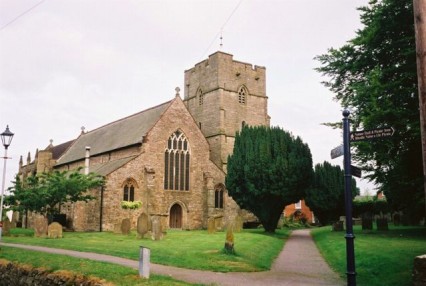
These days, when music is so often consumed online and in technically poor recordings, we’re in danger of forgetting that it is an art form that responds best to place and environment. Presteigne and its surrounding villages, with their ancient churches, rolling countryside and characterful late eighteenth and early nineteenth century houses and cottages, gives us a chance to slow down and move into a different mindset in which to hear music. In these spaces the music not only sounds well but becomes a part of its environment. New scores by figures such as Gabriel Jackson, Joseph Phibbs or Matthew Taylor, all of whom featured at this year’s festival, were all enhanced by the ancient architecture of Presteigne’s St Andrew’s Church or St Mary’s, Pembridge. But Presteigne also magically mixes old with new, as was the case of hearing violinist Fenella Humphreys performing J.S. Bach’s timeless music for solo violin alongside six new works in the simple dignified surroundings of St Mary’s Church, Kinnerton.












